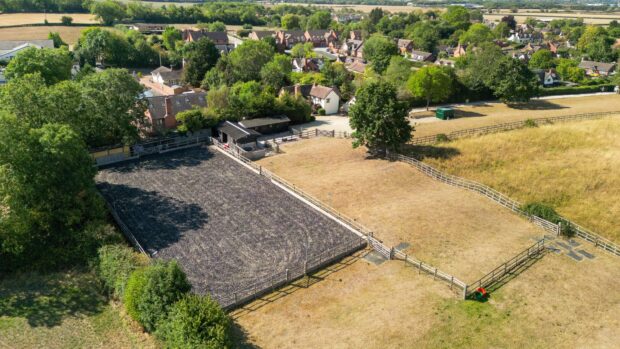Looking for an equestrian property? Check out the H&H property database >>
A new acronym is about to enter the vocabulary of property buyers. It’s an EPC, or Energy Performance Certificate; a rating that measures a house’s energy efficiency levels, outlining costs of heating, hot water and lighting.
According to a recent report by the Sustainable Development Commission, British homes account for 50% of public water usage and 27% of carbon dioxide emissions, which scientists deem among the main causes of global warming.
This is one of the reasons the government has made the EPC an integral part of Home Information Packs — the compulsory set of documents that, from next June, vendors of residential properties have to prepare before marketing their house. Through the EPC, buyers will be able to tell how eco-hostile the property is, and what sort of energy bills they will face.
But there’s more. At the end of last month, housing minister Yvette Cooper called for EPC information to be made available to mortgage lenders throughout the country.
“Next June, every homebuyer will know exactly how energy efficient their homes are,” said the minister. “Why shouldn’t this information be used by mortgage lenders or energy companies? Other countries offer green mortgages, which give homebuyers money to meet the costs of making energy saving improvements.”
At this stage, however, it is hard to tell whether these eco-incentive ideas will make any difference to the housing market.
“Unless there are penalties for energy inefficient homes or substantial incentives for energy efficient ones, such as a rebate on council tax, this isn’t going to affect the market that much,” says Lindsay Burden of Fox Grant. “Mortgage companies will be lending on structural stability and the validity of the valuation will come from comparable sales in the area.”
Other agents, such as Sue Maxwell Smith of Pegasus Equestrian Property, think that once the EPC becomes available, lenders may class very inefficient homes as higher-risk — because they could be harder to sell if repossessed — and levy an increased rate for mortgages on them.
But Sue and her colleagues agree that few equestrian buyers will be put off by a house’s bad energy performance.
“The new certificates could blight energy inefficient homes but the shortage of equestrian properties means this may not have such an impact as it would have on a residential property,” she says.
The significant difference could be for new homes. “Premiums are likely to be paid for new homes with higher ratings and more renewable energy,” says Rachel Beadling of Bidwells. “However, it’s likely that other factors will take precedence.”
That said, prospective sellers can benefit from some forward thinking. Rachel urges them to do some basic work to make their home more eco-friendly, such as by insulating the roof. Anthony Cane of Strutt & Parker suggests installing low-flush toilets and spray taps, which use less water than conventional models. And homeowners should always check for draughts, fix faulty pipes and make sure their boiler system is in good condition and gets serviced every year.
But Rachel Burden warns: “The appropriateness of improving energy efficiency needs to be measured against planning and conservation issues. If PVC windows are going to alter the character of a property, think twice about them.”
Looking for an equestrian property? Check out the H&H property database >>



